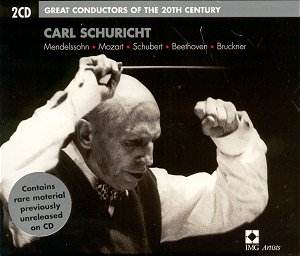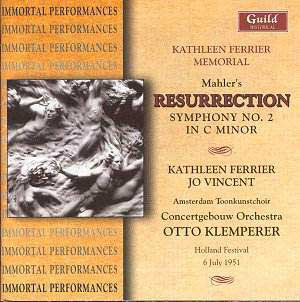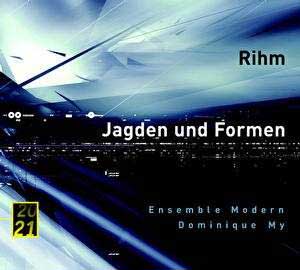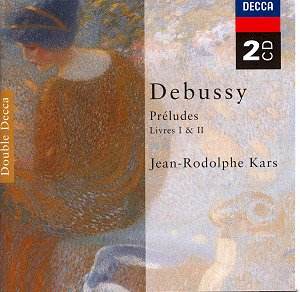 Composer: Carl Schuricht
Composer: Carl Schuricht
Works: Mendelssohn: Overture, Hebrides Op. 26; Schubert: Symphony No. 8 in B minor, “Unfinished”; Mozart: Symphony No. 35, K. 385 “Haffner”; Beethoven: Symphony No. 1, Op. 21; Bruckner: Symphony No. 8 in C minor
Performers: Vienna Philharmonic Orchestra; Orchestre de la Société des Concerts du Conservatoire
Recording: Recorded in Paris and Vienna, 1954-1963
Label: EMI
Carl Schuricht, though less celebrated in contemporary discourse, occupies a significant niche within the pantheon of great 20th-century conductors. His interpretations of the German and Austrian repertoire resonate with a unique blend of authority and sensitivity, cultivated through a career that spanned the transitions of the recording era. This compilation from EMI Classics showcases his adeptness across a broad spectrum of works, from Mendelssohn to Bruckner, offering insights into both his interpretative choices and the historical context of the pieces.
Schuricht’s approach to Mendelssohn’s “Hebrides” Overture bursts forth with an exhilarating lightness, a quality that is often overshadowed by more conventional interpretations that lean toward weightiness. The Vienna Philharmonic’s playing reflects a buoyancy that captures the essence of the Scottish coastline, with Schuricht deftly balancing the orchestral textures to reveal the intricate interplay between strings and woodwinds. The opening’s surging waves are met with an airy delicacy, while the climactic moments retain a sense of spontaneity and freshness, invoking the spirit of Mendelssohn’s own travels.
In contrast, Schubert’s “Unfinished” Symphony reveals the conductor’s deeper engagement with the music’s emotional core. The anecdote of Schuricht’s laborious process of interpretation, involving multiple attempts at the first movement, seems to inform his final reading. Here, the Vienna Philharmonic’s lush string sound is matched by an eloquent lyricism that eschews eccentricities in tempo, allowing the music to unfold naturally. The second movement is particularly striking, where Schuricht teases out the contrasting emotional landscapes with exquisite phrasing, ensuring that each phrase is imbued with a sense of longing and introspection.
Mozart’s “Haffner” Symphony is characterized by a vivacious energy that speaks to Schuricht’s innate understanding of the composer’s playful spirit. This performance is notable for its clarity and precision, the woodwinds emerging with a crispness that invigorates the bustling finale. The Andante is played with a tender lyricism, where Schuricht’s emphasis on dynamic contrasts brings out the subtleties of Mozart’s orchestration. The orchestral balance is particularly commendable, with the brass and percussion adding a celebratory flair without overwhelming the elegance of the string lines.
Beethoven’s First Symphony, while perhaps less compelling due to the resonant acoustics of the Salle Wagram, still offers a performance of merit. The orchestra’s sound, while occasionally blurred, is nevertheless vibrant, and Schuricht’s interpretation highlights the work’s youthful exuberance. The second disc culminates in Bruckner’s Eighth Symphony, where Schuricht’s masterful command of the expansive structure is vividly realized. He navigates the symphonic architecture with a keen sense of pacing; the climaxes are monumental yet infused with a warmth that contrasts with the often cold precision of Karajan’s interpretations. Schuricht finds a middle ground between the fervor of Furtwängler and the polished veneer of later conductors, presenting a Bruckner that is both robust and deeply human.
The sound quality of these recordings, owing to the era in which they were made, bears the marks of its time, yet EMI’s engineering manages to capture the orchestral colors with surprising clarity. The remastering work allows the listener to appreciate the nuances of Schuricht’s interpretations, even if some of the acoustic imperfections of the original recordings remain.
Carl Schuricht’s contributions to the repertoire showcased in this collection affirm his rightful place among the great conductors of the 20th century. His interpretations reveal a thoughtful engagement with the music that transcends mere technicality, offering listeners a profound connection to the emotional and structural intricacies of these masterpieces. The performances stand as a testament to his artistry, deserving of renewed appreciation in the contemporary classical landscape.



